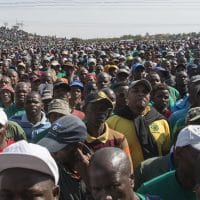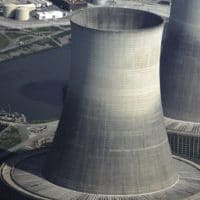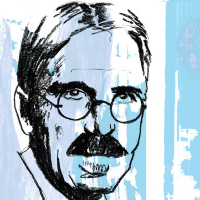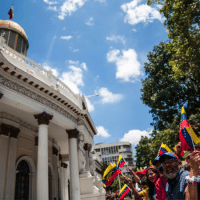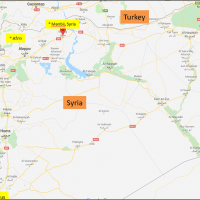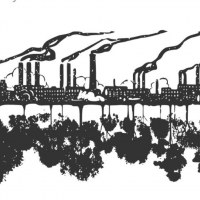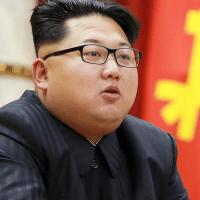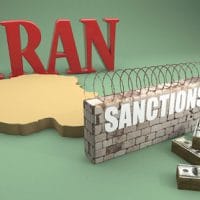-
A spectre is haunting us: it’s the past weighing like a nightmare on the present
The rise of extreme right wing politics is a response by sections of the ruling classes internationally to the economic stagnation.
-
The chicken game and rotten eggs
Germany’s politicians played the chicken game last week, testing which party, Angela Merkel’s Christian Democratic Union or its Bavarian “sister party”, Horst Seehofer’s Christian Social Union, would be the first to swerve.
-
Nuclear power: private profits, social costs
Nuclear power is enormously expensive and yet successive U.S. governments, including that of President Donald Trump, have supported the industry in many ways. The net result is that various costs are passed on to society at large, while the profits accruing from this pursuit are privatized.
-
Willetts the Conqueror (part 6) – Academic freedom
Today, academic freedom is increasingly under threat from marketisation, in particular as a result of the mutually reinforcing pressures on academics to meet instrumental, neoliberal economic objectives, imposed from above via national-level performance management systems–the TEF, REF and KEF–and from below through local-level, bureaucracy-heavy managerialism.v
-
Amazon’s fusion with the state shows neoliberalism’s drift to neo-fascism
MPN spoke to Yasha Levine, the author of “Surveillance Valley,” and Monthly Review editor John Bellamy Foster about the rise of the Amazon.com empire and the merger of Big Data, finance capitalism, and the U.S. state apparatus.
-
Escraches come north: “Incivility” or an end to impunity?
We need to remember that these protests aren’t about political views: they’re about government officials violating international law, U.S. treaty obligations, and basic human rights.
-
Venezuela’s embarrassment of riches?
Letting the law of capitalist value govern society makes building socialism almost impossible because, even if the general guidelines of capitalist value seem to be acceptable, all it takes is for the market to plunge for you to lose your bearings entirely.
-
June 2018: reflections on 1988 three decades later
Capitalism as a system functions irrationally because social and ecological concerns cannot be taken into account when making business decisions. Profits before all else.
-
U.S. and Turkey agree on joint control of Manbij, Syria, violating Syrian sovereignty and confounding claims by Western corporate and alternative media of ‘Russia-Turkey collusion’
Agreement between the two NATO allies highlights wrongheaded analysts in corporate and alternative media in the West who have played up ‘U.S.-Turkey conflict’ over Syria and falsely argued that Russia is backing Turkey’s anti-Kurdish violations of Syrian sovereignty.
-
The crisis of the regime and the 2018 elections
Mexico’s July 1 elections represent a moment of political restructuring in the midst of a profound crisis in Mexico’s current regime. In this context, the question of whether or not to vote is secondary to the need to organize the anti-capitalist left, either to seize the opening that a victory by Andrés Manuel López Obrador could provide to build a united workers’ movement to the left of his party, or to defend against the very real possibility of another fraudulent “victory” by representatives of the PRI-PAN alliance.
-
Times up for Capitalist Patriarchal Racism—and not just for the men who perform it
As we head into the 2018 elections feminists of all sorts must make sure that there is a revolutionary commitment to restructure the massive system of oppression maintained by sexual violence. Becoming a part of the existing structure is not enough—nor is simply being female.
-
Vladimir Vernadsky and the disruption of the biosphere
Virtually unknown in the west, the great Russian geologist and geochemist pioneered scientific study of life’s impact on the Earth.
-
Maduro is re-elected in a show of popular resistance
The May 20, 2018 elections in Venezuela were a victory for the popular sectors and a defeat for the U.S. backed opposition, the Democratic Unity Roundtable (MUD).
-
Sunday hits at racists
Organizers of the far-right AfD hoped to get 10,000 adherents for a march on Sunday in Berlin, but their ranks were far thinner, even with buddies from openly pro-fascist gangs. After distributing a thousand or more big German flags, they joined ranks and set off on their anti-foreigner, anti-Islam, anti-leftist Berlin crusade.
-
Why Geoengineering is not a remedy for the climate crisis: an ecological point of view
Massive Plantations: A Viable Means of Carbon Sequestration? A recent article in Wired offered a cogent critique of the foremost technofix put on the table as a solution for the climate crisis 1. The article, “The Dirty Secret of the World’s Plan to Avert Climate Disaster,” by Abby Rabinowitz and Amanda Simson, reveals that the […]
-
Marx and Metabolism: lost in translation?
Why wasn’t Marx’s concept of metabolic rift recognized until recently? Changed circumstances, unpublished works, and bad translations all played a role.
-
Kim Jong Un’s move from nuclearization to denuclearization?
Kim Jong Un’s meeting with Moon Jae-In and the coming summit with Donald Trump do not constitute a volte-face by the North Korean leader.
-
About the movie The young Karl Marx
This a very professional movie made by a leftist director (Raul Peck), starring a number of rather good actors. It covers the time between 1842, when Marx was the chief editor of the Rheinische Zeitung, and early 1848, when the “Communist Manifesto” was finished.
-
Dangers and divisions
A Donald-Bibi drama is being staged; each is playing his part on cue. Only days after Netanyahu’s press conference attack on Iran, Trump tore up the U.S. copy of the Iran nuclear agreement.
-
Iran sanctions, imperial problems
Trump’s anti-Iran move on Tuesday was deeply worrying for allies of the US. It is a blow for those countries, especially in Europe, that were hoping to build on the big expansion of trade with and investment in Iran after the July 2015 nuclear deal was signed.

